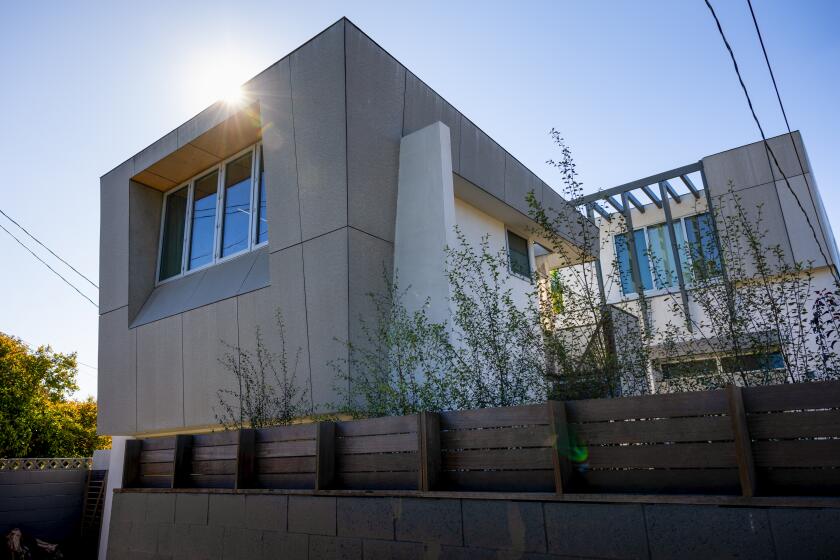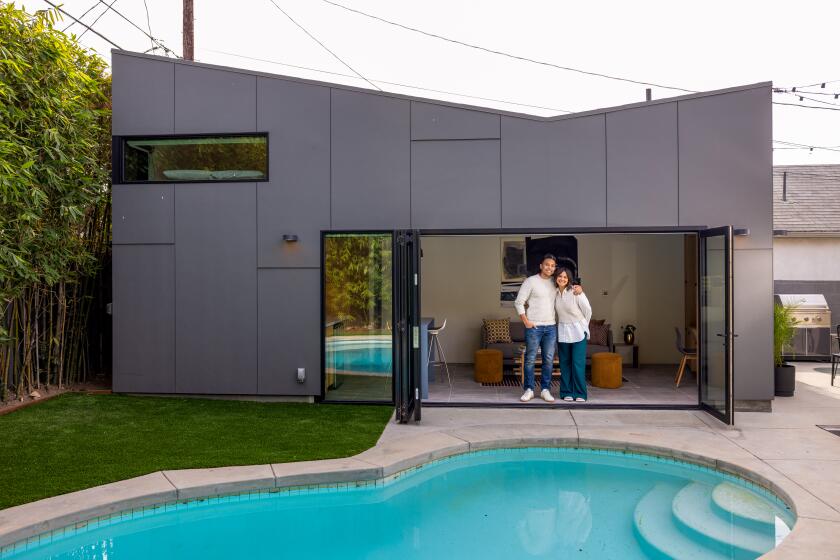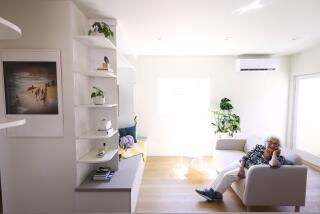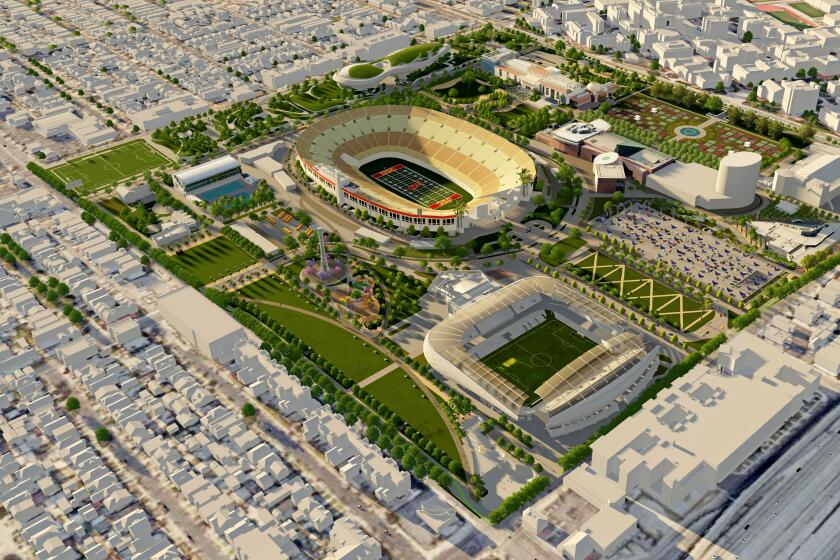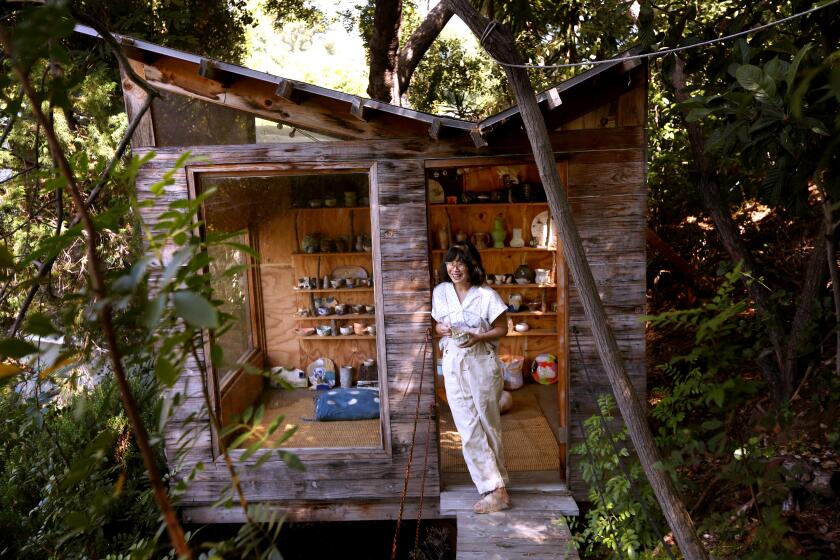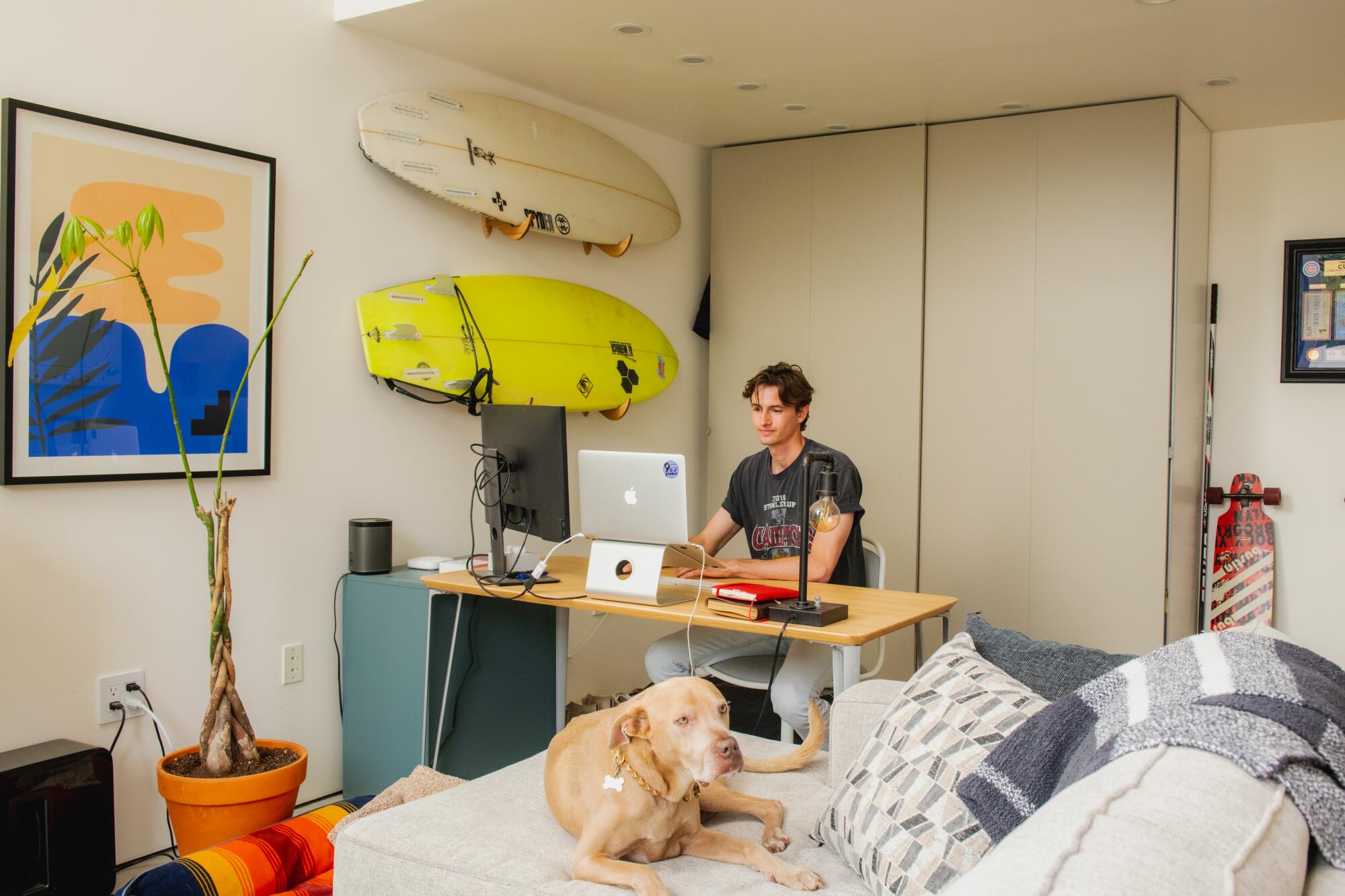
Anyone who has obsessively scrolled through Zillow and Padmapper looking for rentals in Los Angeles knows how difficult it is to find housing in a city where most are renters.
Add to the search popular amenities like parking, laundry, pet accommodations and private outdoor living space, and housing becomes even more tricky.
“You have to be diligent,” says Ben Larson, a 29-year-old commercial real estate broker for Industry Partners who found everything he was looking for. “I got lucky.”
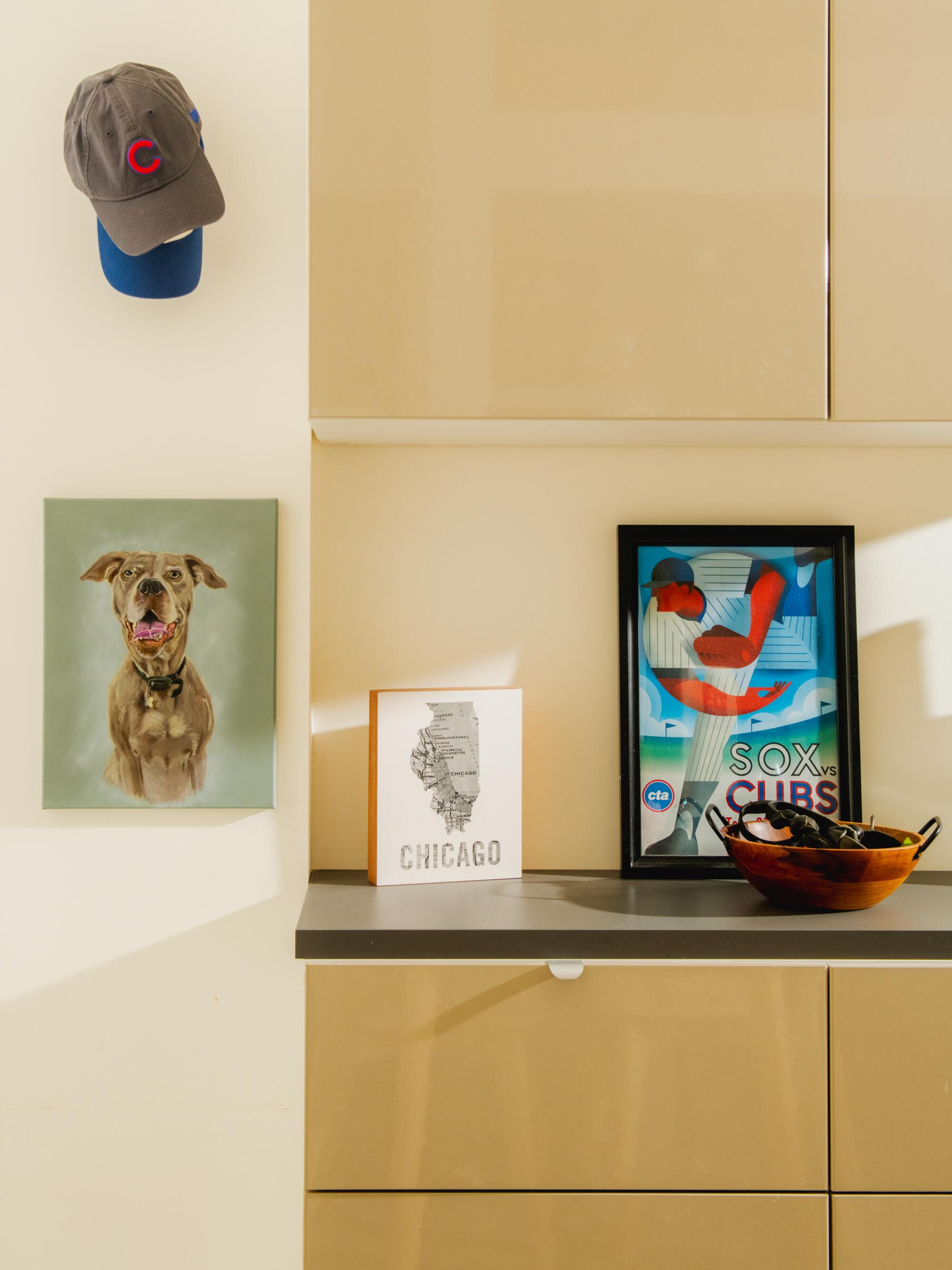
As is often the case, Larson found the perfect rental for him and his dog, Theo, on Zillow.com. However, it was far from a typical apartment listing: a 500-square-foot accessory dwelling unit, or ADU, in the backyard of architect Cameron McNall’s longtime Mar Vista home.
“This place is such a nice sanctuary for us,” says Larson, who has had Theo since his senior year in college. “It’s so nice and comfortable. It’s perfect for one person.”
L.A. architects making the case for communal living built a tiny ADU above their garage. Design choices make the most of 300 square feet with soaring ceilings and inventive storage.
When the opportunity came to transform his garage into a one-bedroom, one-bath ADU in 2021, McNall viewed the addition as more than just a way to supplement his retirement.
“Our motivations for making the ADU certainly include extra income,” confesses McNall, who is in his late 60s and collects Social Security benefits. “But I have real problems with suburban land use, and I don’t think it’s right. I embrace the idea that we can increase the density. Aside from making extra income, I feel better about my footprint on the planet.”
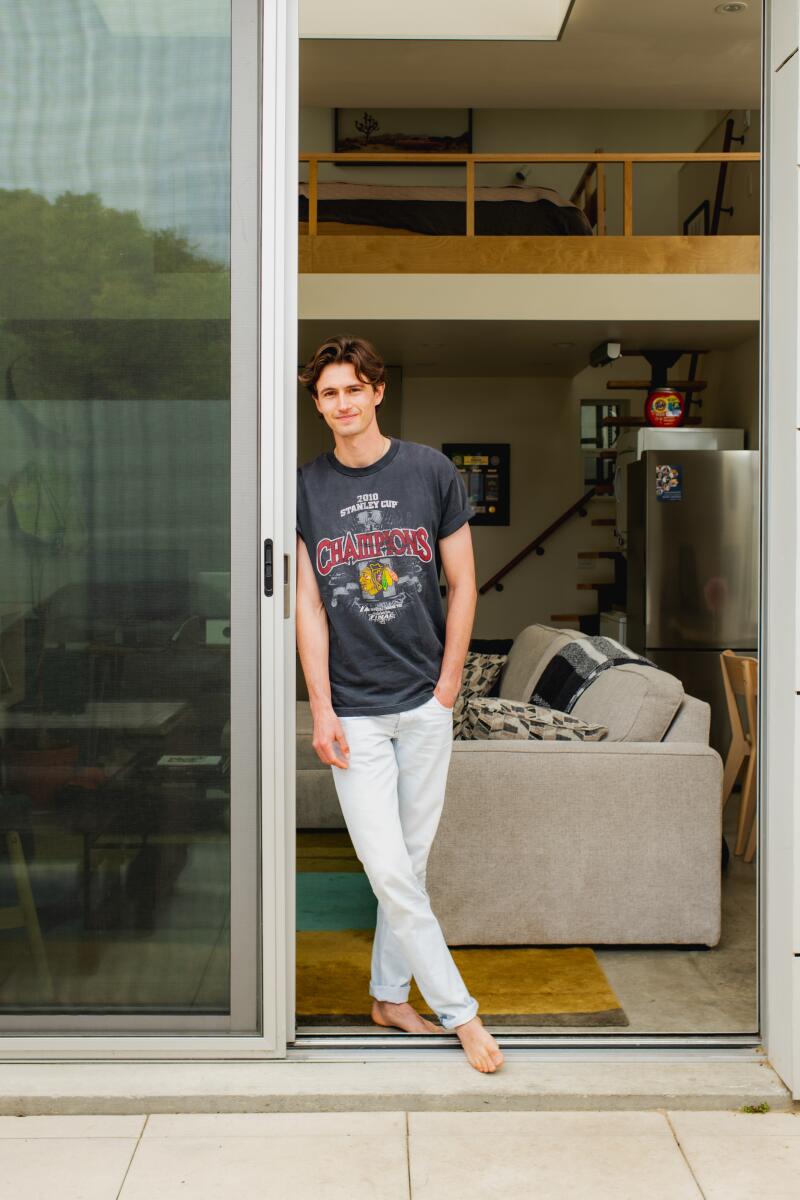
“It feels separate,” Ben Larson says of his backyard rental in Mar Vista.
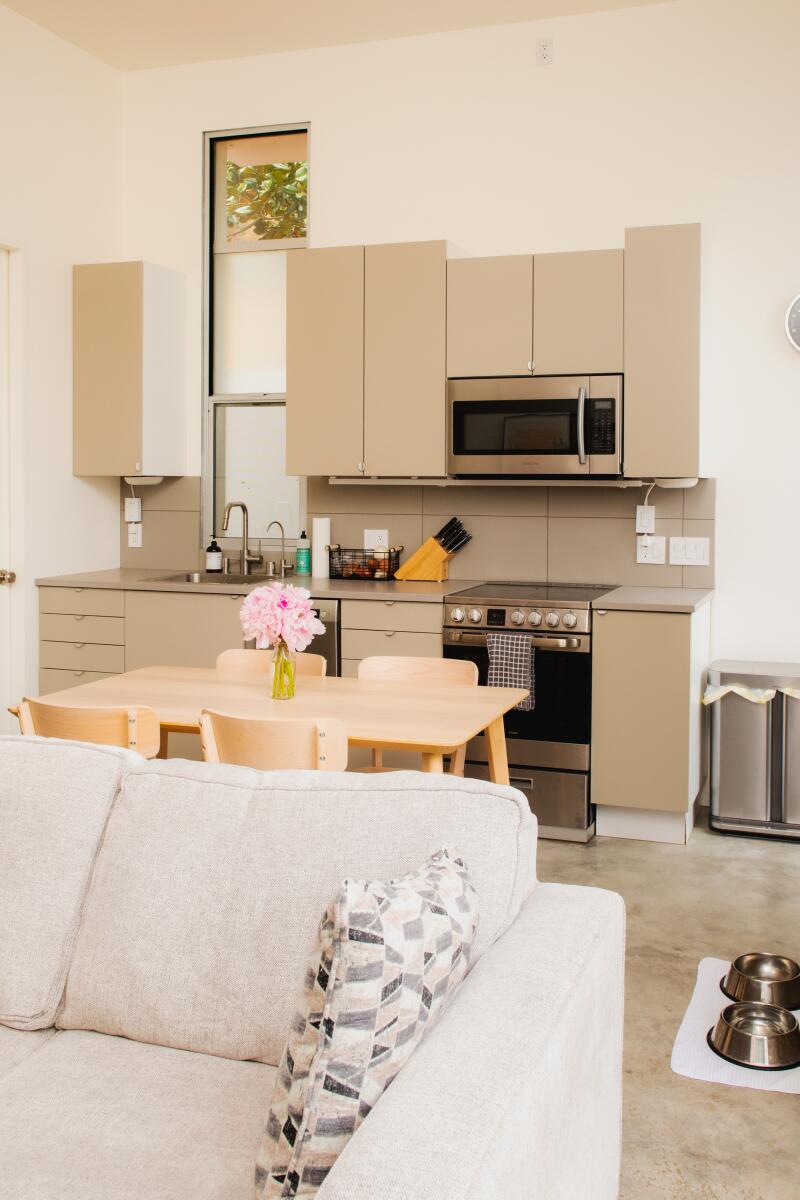
The ADU features an Ikea kitchen and frosted glass windows for privacy.
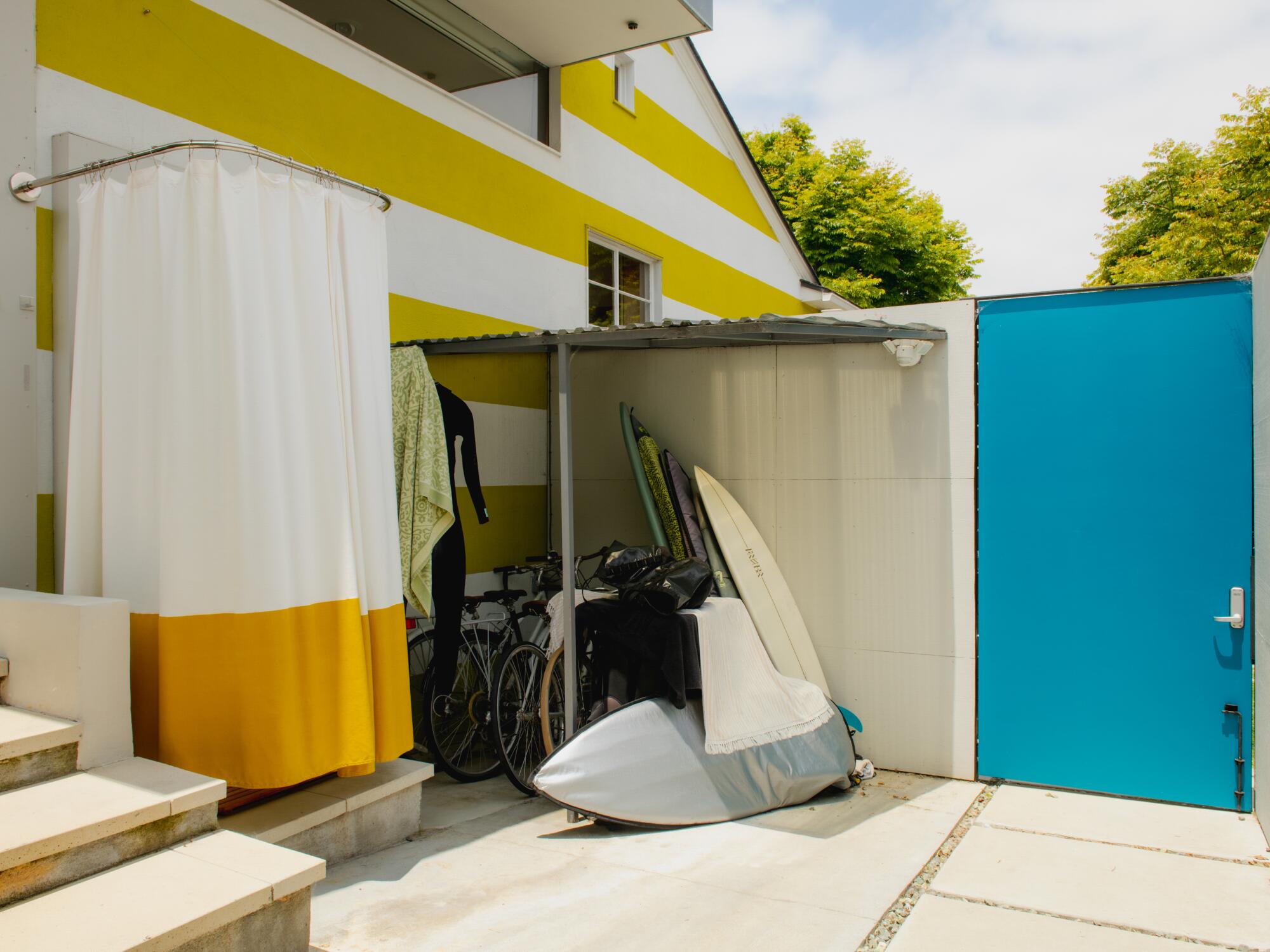
Now that McNall and his wife, Margi Reeve, have rented the ADU to two separate tenants over the last two years, they say they have enjoyed the arrangement and “feel safer with another person and dog on the property.” But after three decades in L.A., the couple decided in January to rent out their four-bedroom main house, which they purchased for $290,000 in 1993, for $7,000 a month. They plan to become nomads and travel.
“While I enjoy Southern California so much, as I age, we crave European pedestrian city life. We will go for six months and then decide if we want to continue,” says McNall.
Twenty years ago, the architect partly renovated the garage by extending its footprint by 30 inches and reframing it to 11 feet high to use as an office. When it came time to build the ADU, which he now rents to Larson for $3,400 a month, McNall started with “a high-ceiling box.” His head start, he says, meant that the extra work involved in adding plumbing and other items was not as expensive as it would have been if he had started from scratch.
Sign up for You Do ADU
Our six-week newsletter will help you make the right decision for you and your property.
You may occasionally receive promotional content from the Los Angeles Times.
“It was a very nice studio,” McNall adds. “It had an oversize roll-up garage, and I had as many as eight people working there. More recently, I stopped working there and had smaller jobs. I wasn’t using it the way I used to.”
The resulting ADU, which McNall estimates cost around $250,000, is one big room with a flat ceiling that feels open and intimate despite its small floor plan. McNall is a big fan of using Hardie Board; he wrapped the exterior in large blank sheets of the easy-care fiber cement siding. He says the average carpenter or homeowner can work with it efficiently. “It’s a material that looks good, is fire-resistant and lasts forever,” he adds.
The simple box has a private entrance just beyond a communal space alongside the main house, painted in statement-making bright yellow horizontal stripes. “I painted the house that color because it pleases me and about 70% of the neighbors,” he says. The area includes an outdoor shower, storage for multiple bikes and surfboards and EV chargers for both the main house and the ADU.
McNall describes the ADU, outdoor spaces and main house as interlocking “like a Chinese puzzle.”
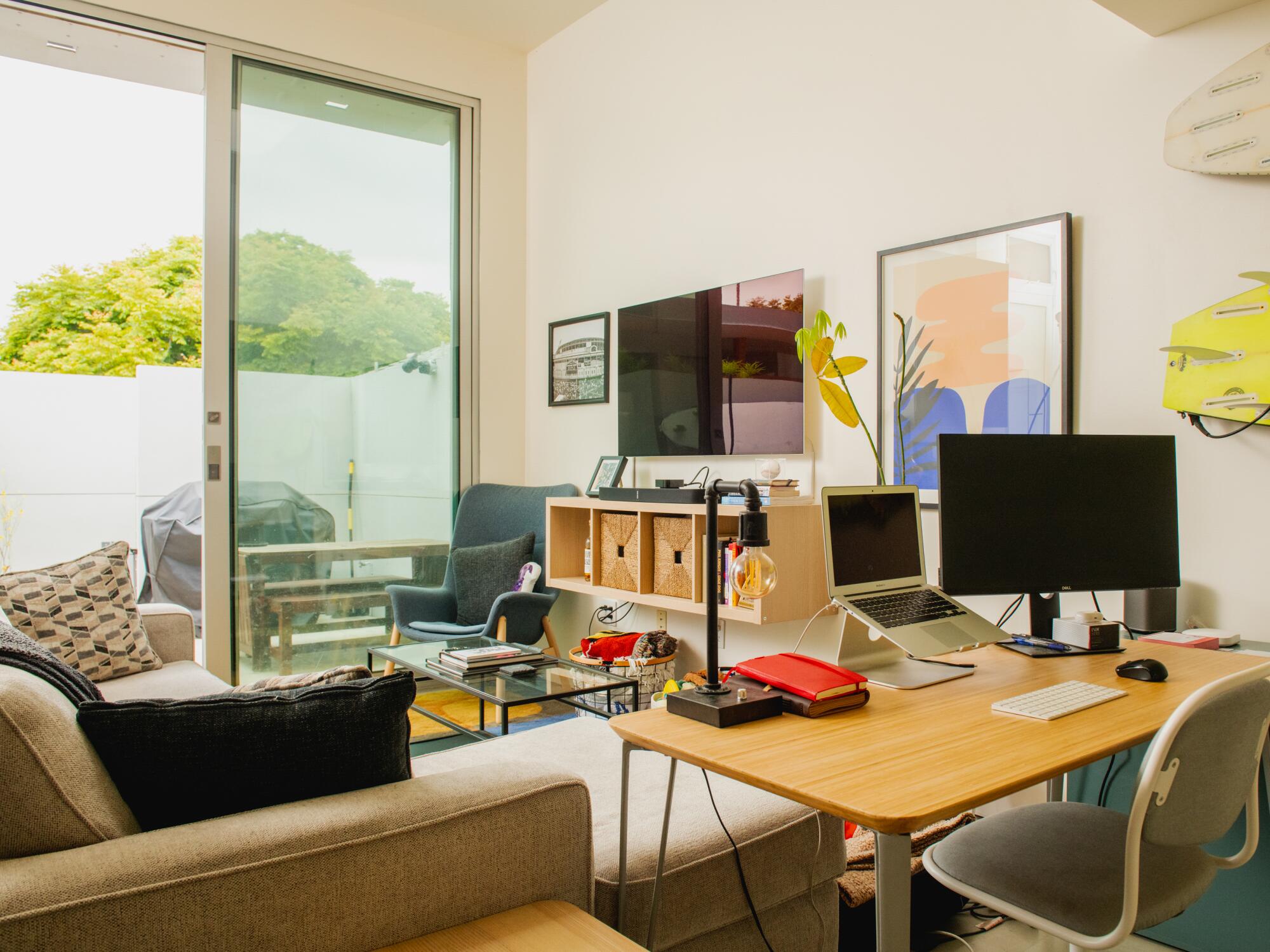
Careful to preserve private outdoor space for tenants, McNall designed an open patio in front of the ADU with enough room for a barbecue and outdoor dining table. There is also room for Larson’s surfboards, some gym equipment and a pair of stadium seats from the Chicago native’s beloved Wrigley Field.
“I’m a homebody, and my place is important to me,” Larson says. “This place is super efficient, and I like hosting my family and friends here and grilling outdoors.” The surfer also likes that he is near El Porto Beach and that he lives in a great walking neighborhood for Theo, whom he walks three times a day.
A 380-square-foot ADU with plenty of storage offers flexibility for a Los Angeles couple and their extended family, including working from home and housing.
Just past the sliding glass doors, the open-concept first floor features polished concrete floors and a full-size kitchen outfitted with Ikea cabinets and custom Caesarstone counters installed by the retailer. “It’s a good choice for renters,” McNall says.
The sofa, bordered by a desk and office chair, separates the dining room and kitchen from the living room. Surfboards are mounted on the wall, and skis and golf clubs are propped in a corner next to the stackable washer and dryer.
Although there are no windows on the property-line side of the ADU, windows and a skylight are strategically placed throughout to bring in light and air. “I like having light at all times of day,” McNall says of his expensive window package, which cost around $20,000. There is also a cozy loft space and an adjunct building behind the main house McNall built to regain some of the storage they lost when they built the ADU.
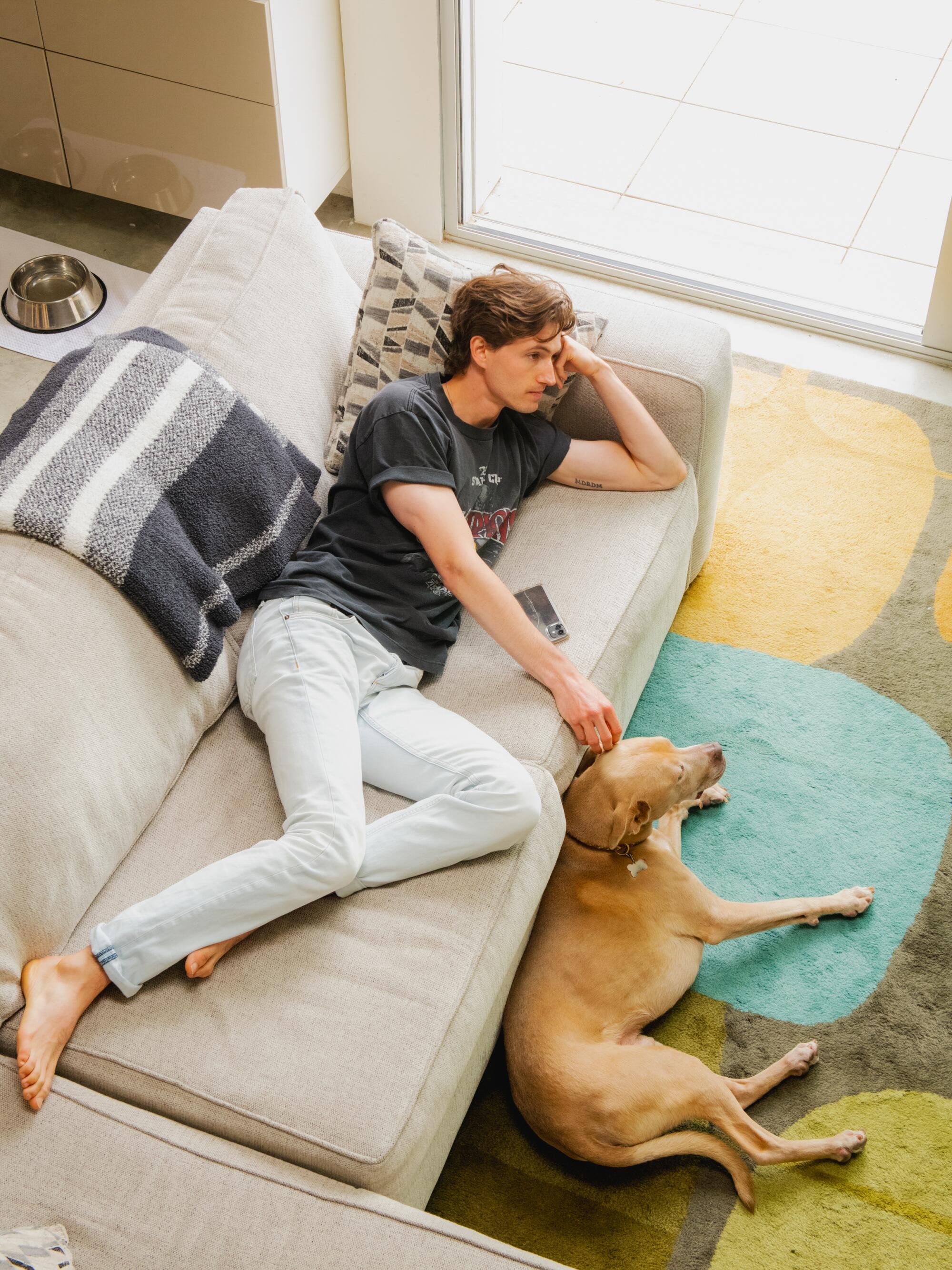
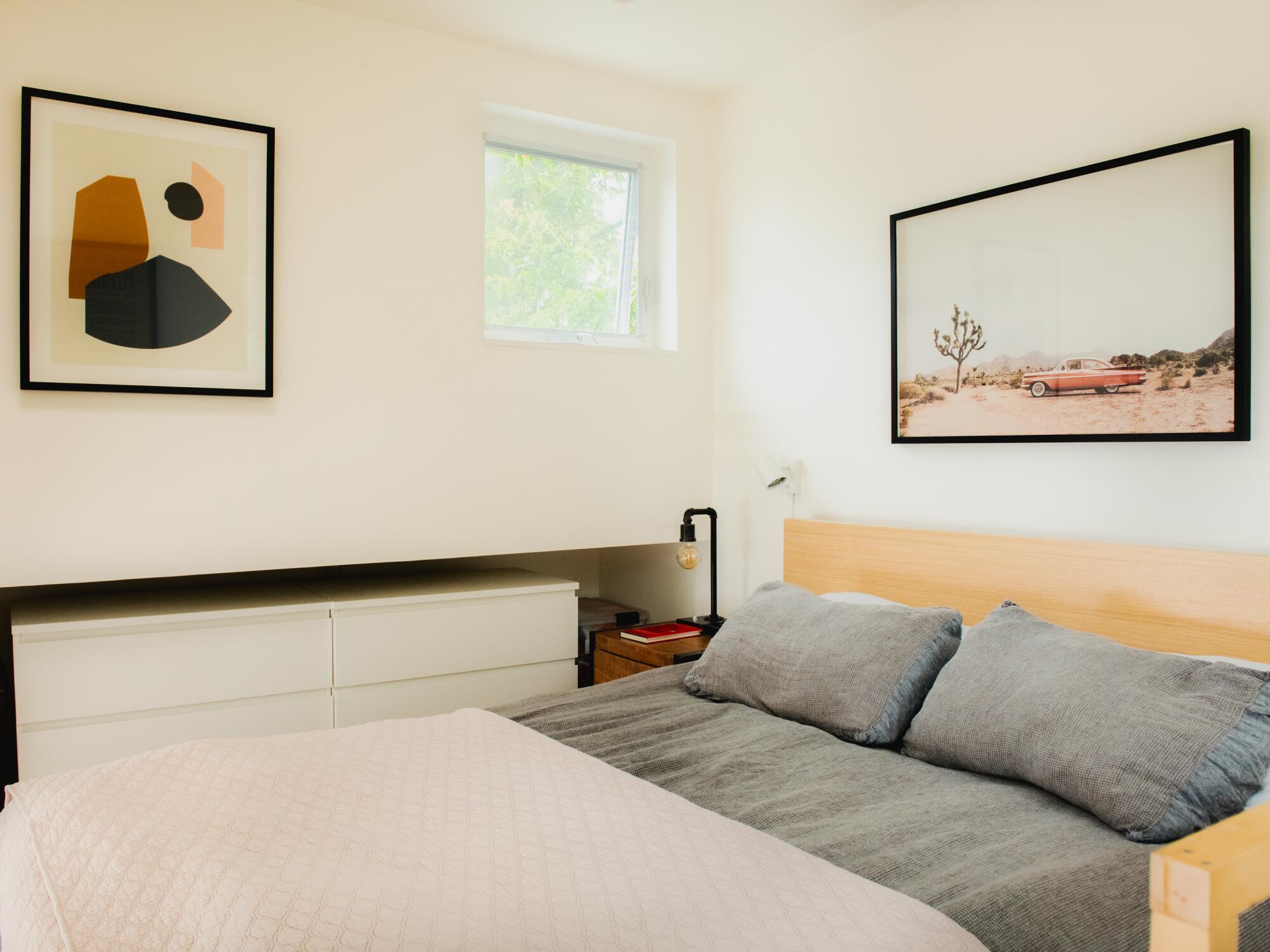
Regarding parking, McNall chose to widen the driveway so that both houses have off-street parking and all occupants can come and go independently. “Single driveway parking does not work well for two units,” he says.
McNall also frosted the ADU’s glass so tenants wouldn’t look into the main house and vice versa. “We both have total visual freedom, but there’s never that discomfort of looking at each other,” he says. “There is also a social thing where everyone tries to give everyone space.”
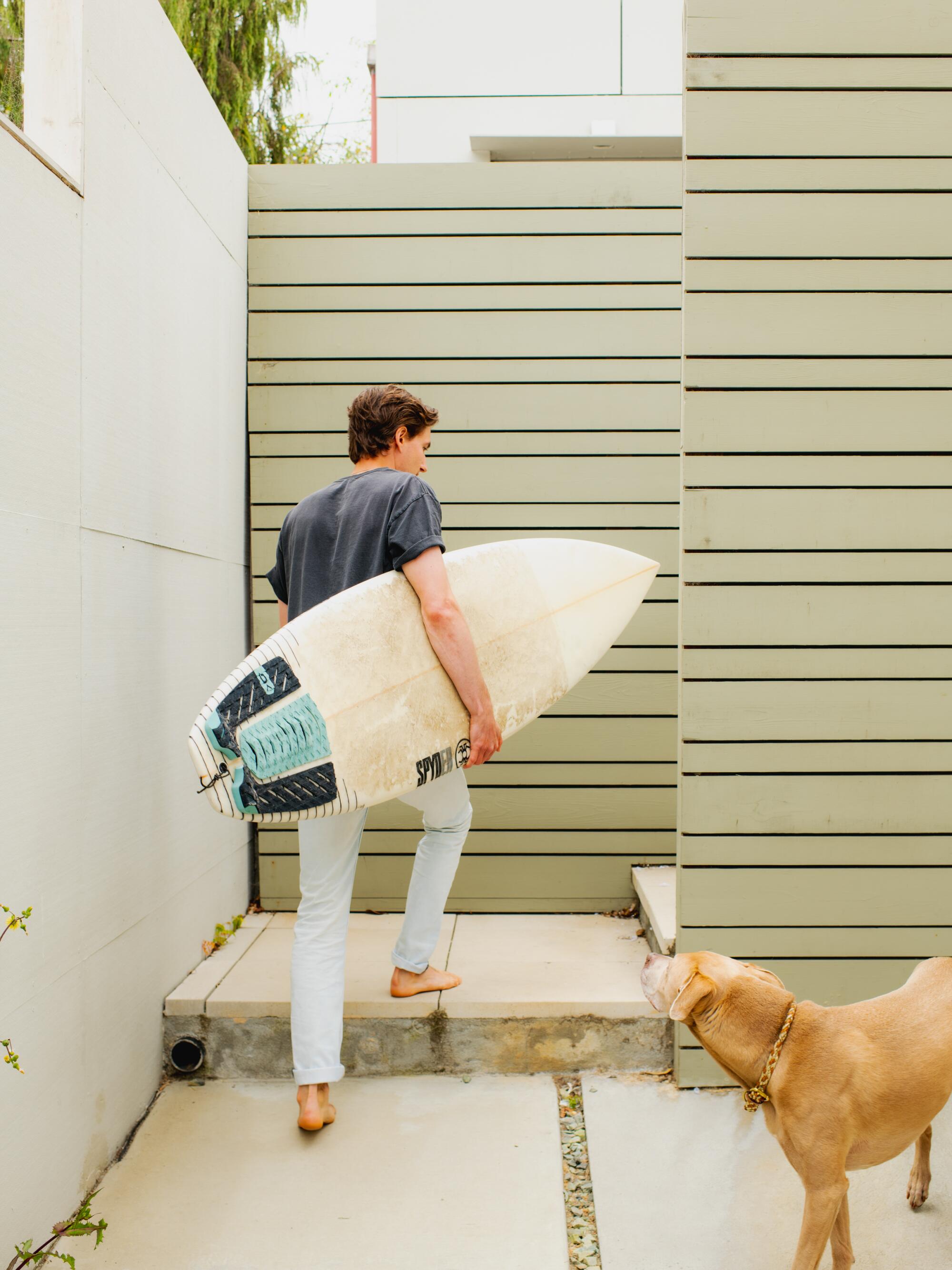
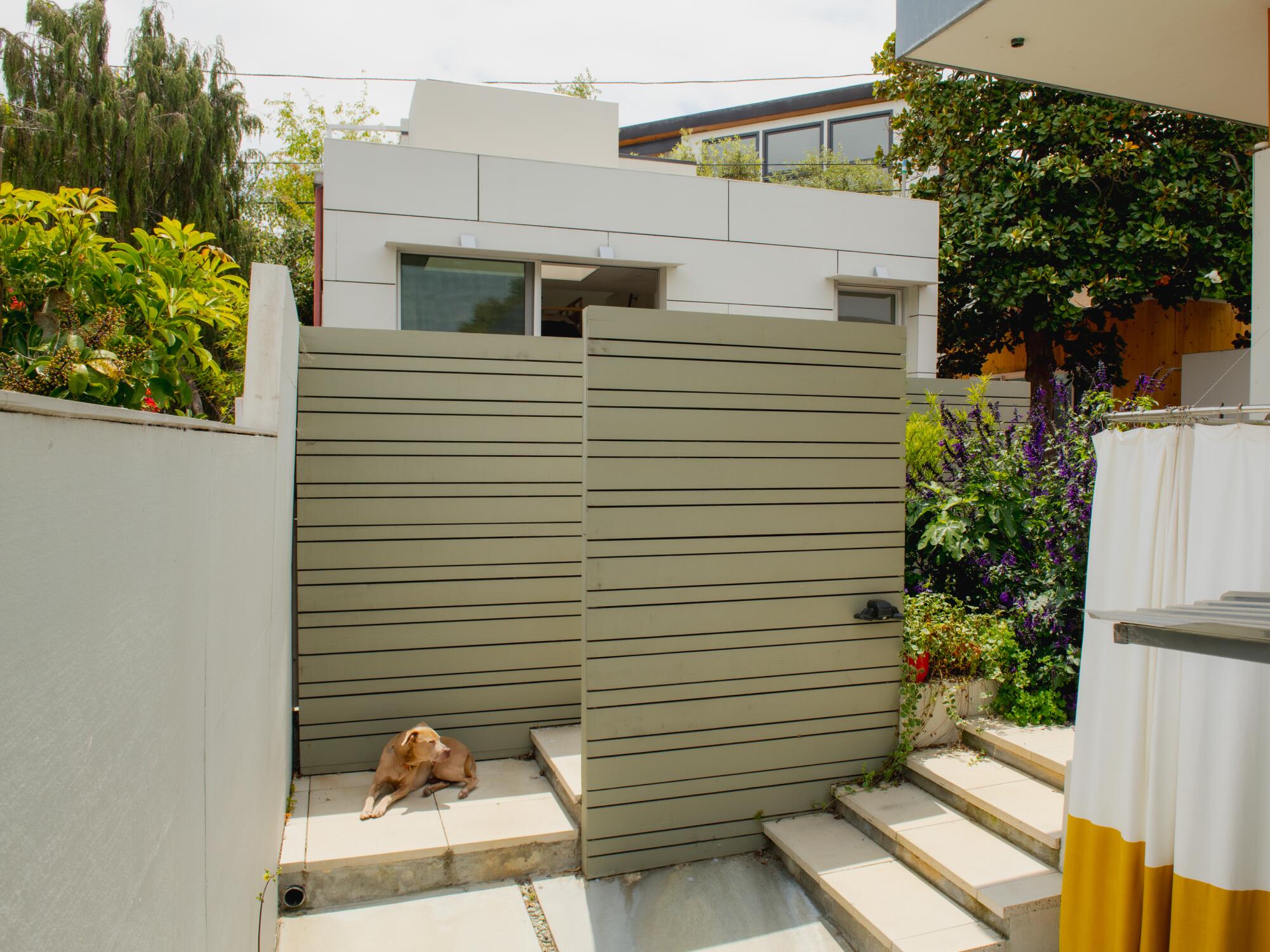
Looking to the future, McNall says he and his wife may consider returning someday to live in the ADU rather than the main house, “particularly if we split our time between Los Angeles and Rome.”
But for now, McNall’s compound in Mar Vista is a home base for two families. Just not his.
More Los Angeles ADUs
How L.A. architects designed a 300-square-foot ADU that pulls in $1,750 a month
Three rentals and an ADU? A narrow two-story in Venice makes the case for building up
They turned their tiny L.A. garage into an ADU rental for steady income. Here’s how
Millennials and Gen Z can’t afford homes. Is this prefab ADU a solution?
How a Spanish bungalow in L.A. went from sad to sexy (Hint: There’s an ADU rental)
She wanted more than a guesthouse for her sister. This tiny ADU in L.A. delivers
Tetris-like ADU packs an office, pool house, music room and gym into a tiny space
Tiny hideaway inspired by Richard Neutra has terrarium vibes and a rooftop deck
This ADU rental with windows galore is a houseplant lover’s dream
How an aging Tudor’s ADU reunited a family and brought them closer together
More to Read
Sign up for This Evening's Big Stories
Catch up on the day with the 7 biggest L.A. Times stories in your inbox every weekday evening.
You may occasionally receive promotional content from the Los Angeles Times.
